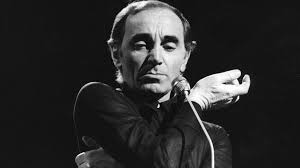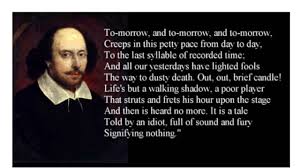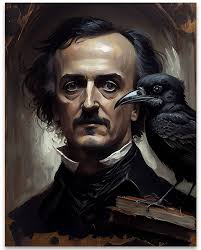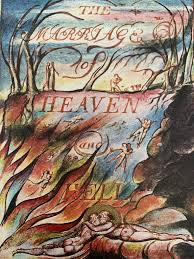FORGETFUL HEART AND PHILOSOPHY
Forgetful Heart, from 2009’s Together Through Life, takes us directly into the ‘heart’ of the philosophy which is depicted in the existential works of French writers like Albert Camus and Jean-Paul Sartre with great eloquence, passion and power. The ‘stripped down’ lyrics are knife-sharp. This is a song about the effects of time, about memory, about old age looking back on youth and about how our lives can be wasted if we do not savour every single moment. It is both an address to a lover and an appeal to the singer’s own emotional core: …Forgetful heart, lost your power of recall... Dylan begins …Every little detail, you don’t remember at all… The next line …The times we knew… is a near-verbatim reference to Charles Aznavour’s song The Times We’ve Known …Who would remember better than you?… Dylan asks. Already there is a palpable sense of loss and of great regret. This is made all the more effective because it is set against a distinctively haunting melody which allows us to almost taste the bliss whose absence the song laments.

CHARLES AZNAVOUR
FORGETFUL HEART AND TIME
The message appears to be that, in order to truly appreciate love for another person, one must be absolutely present in the moment. Such moments, however, can easily slip away. Even in the midst of ecstatic love we can become distracted, egotistical or over-possessive. The song also grapples with the problem of what time does to human consciousness. Even if one has really loved, as time passes, recapturing that feeling may become impossible. ‘The times we knew’ cannot ever be brought back. In this deep conversation with his heart, the singer laments the impossibility of freezing those feelings in time, despite the fact that the attempt to do so is perhaps the main goal of all poetic songwriters.

FORGETFUL HEART…. THE BUILD UP
The next two verses build up the tension by following a set pattern of alternating between short and long lines. The second verse begins: …Forgetful heart/ We laughed and had a good time you and I… In the third verse we get …Forgetful heart/ We loved with all the love that life can give… These are colloquial, warm reminiscences, showing that the narrator’s memory is intact. But the responses in the next lines: …It’s been so long/ Now you’re content to let the days go by… and …What can I say?/ Without you it’s so hard to live… are despairing, the short statements conveying the narrator’s lack of ability to recall or reclaim those feelings. At the end of the second verse we are offered some hope: …When you were there/ You were the answer to my prayer… but by the end of verse three the efforts to recall the feelings that have deserted him have overwhelmed him: …Can’t take much more… he tells us, in no uncertain terms. Then there is the pathetic rhetorical plea: …Why can’t we love like we did before?… It is a question that nobody can answer. Time has done its work now and the feelings of the past cannot be reclaimed. Its effects are inexorable, inescapable…

Finally Dylan links the corrosive effect of time to Macbeth’s famous …Tomorrow and tomorrow and tomorrow… soliloquy in which the protagonist, on hearing of the death of his wife, expresses the despairing notion that life is essentially meaningless: …Life’s but a poor player… the murderous king tells us …a walking shadow that struts and frets his hour upon the stage and then is heard no more… Dylan encapsulates this speech and internalises it: …Forgetful heart… he laments …Like a walking shadow in my brain… The powerful image of a shadowy figure pounding the ‘corridors’ of the singer’s brain, echoing the heart which beats ever louder and louder, leads us to the brutal reality of the narrator’s confession that …I lay awake and listen to the sound of pain…

He is a soul in torment, quite literally in limbo. But the triumph of the song is that he has somehow detached himself from his pain. Rather than feeling it, he ‘listens’ to it, as if it is somehow external to him. Or perhaps he all he can hear is the insistent beating of his own heart. This recalls Poe’s The Tell Tale Heart, in which the narrator is a murderer who kills an old man merely for the thrill of doing so. He then buries the corpse under his floorboards and covers his tracks meticulously. But eventually he can hear nothing but the beating of the dead man’s heart (which of course, is only in his mind). This is so overwhelming that he gives himself up to the police.

MR. POE
Then, in one of Dylan’s most astonishing lyrical coups, everything is turned around …The door is closed forevermore…. he declares ominously …if indeed there ever was a door…. The conjoined word ‘forevermore’ is an echo of Poe’s famous refrain ‘nevermore’ in his poem The Raven where the dead girl Lenore is described as nameless here for evermore. The ‘door’ being referred to might be the ‘door’ to hell that Dylan is trying to slip through in Can’t Wait or the one in whose shadow the haunted narrator of Standing in the Doorway strums that Gay Guitar. But it can never be opened. What it represents is beyond human understanding. So there will ‘indeed’ be no answer to the narrator’s ‘prayer’. These words express an entire spiritual dilemma. They suggest that maybe in fact there is no door, and thus no heaven and no hell. Maybe ‘the door’ itself and what it may lead to is all a construction of the imagination. The crucial word in the line is ‘indeed’, which is normally a word used for emphasis, drawing our attention to the final conclusion that the great barrier that the narrator has erected is merely one he has constructed in his own mind. But in this case ‘indeed’ also suggests that the door might even be real.

FORGETFUL HEART AND SPIRITUAL UNCERTAINTY
The resolution of Forgetful Heart is one of Dylan’s key moments of spiritual uncertainty; a paradoxical twist in which he admits the inadequacy of language when dealing with the ultimate questions. But he also suggests that, when negative emotions overwhelm us, there is always a way out. All we have to do is look inside ourselves and reconceptualise the way we see things, using words to create new mental structures. Then the imaginary doors we have placed in front of us will disappear. This is a very Blakean insight into the spiritual world – suggesting that by thinking ‘poetically’ we can go beyond the limitations of mere words in order to rearrange the images that have become fixed in our mind and reconstruct them anew. Forgetful Heart’s exploration of romantic disillusionment celebrates the fact that individuals can choose to cast off the …mind forg’d manacles…. which prevent us from experiencing true creative and spiritual liberation. As Blake states in The Marriage of Heaven and Hell: …If the doors of perception were cleansed, everything would appear to man as it is, Infinite…





Leave a Reply